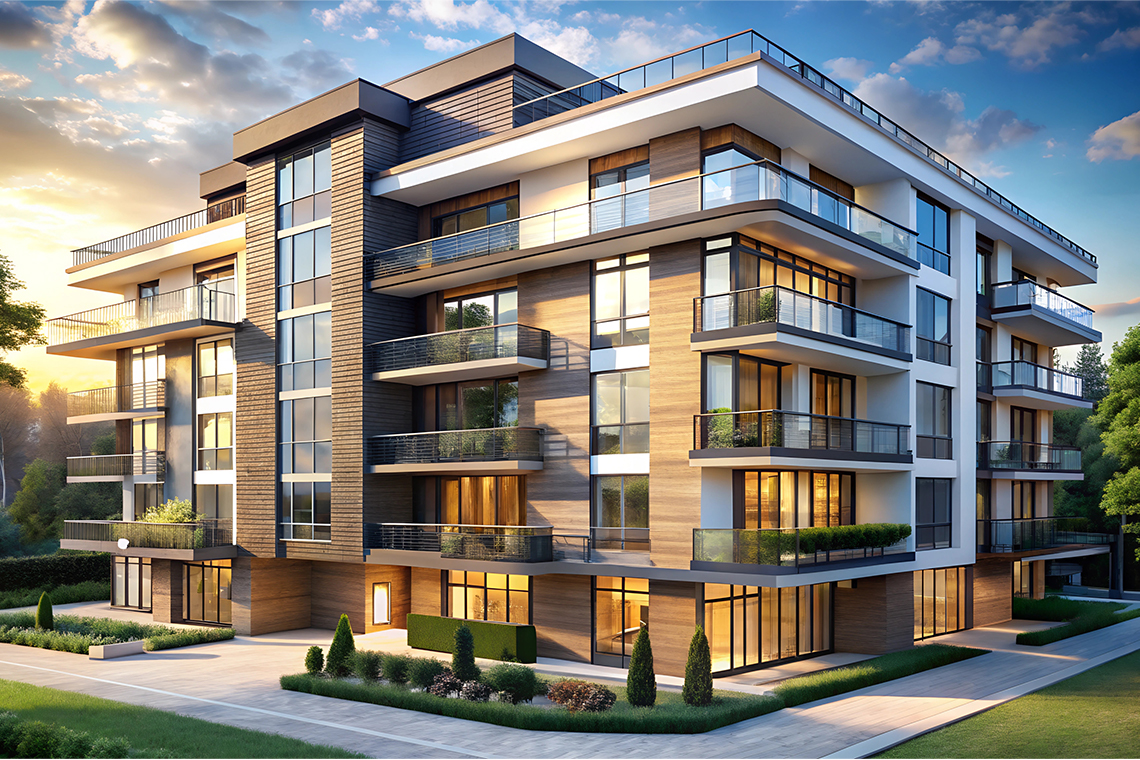
11 Important Tips for Buying a Flat in Chennai – A First-Time Buyer’s Guide
Introduction
Buying your first flat in Chennai is a major milestone—but it can also be overwhelming. With multiple factors to consider—budget, builder credibility, legal paperwork, and civic infrastructure—it’s easy to make costly mistakes. Chennai’s real estate market is diverse, offering everything from luxury gated communities to budget-friendly apartments in emerging suburbs. This guide is specially crafted for first-time homebuyers who want to navigate the process with clarity and confidence.
Whether you’re a working professional eyeing a 2BHK near your IT office in OMR, or a family looking for a peaceful home in Porur or Tambaram, these tips will help you make a smart investment that stands the test of time.
1. Understand Your Budget and Loan Eligibility
Assess Your Financial Readiness
Before visiting any property or speaking to a builder, take stock of your finances. This includes your monthly income, existing liabilities (like car loans or EMIs), and savings for the down payment. Ideally, your EMI should not exceed 40% of your monthly income.
Know Your Loan Eligibility
Banks evaluate your income, credit score (CIBIL), age, and employment stability before sanctioning a loan. Use online EMI calculators or consult your bank for a pre-approval letter—it helps negotiate with builders confidently.
Factor in Hidden Costs
Apart from the basic flat cost, account for:
- Registration and stamp duty (approx. 7–8% in Tamil Nadu)
- GST (only on under-construction flats)
- Interior work (kitchen cabinets, wardrobes, etc.)
- Society maintenance deposit
Proper budgeting prevents last-minute shocks and ensures you don’t overstretch financially.
2. Choose the Right Locality Based on Lifestyle and Future Growth
Define Your Priorities First
Before selecting a location, consider key lifestyle and practical factors:
- Distance to your workplace and schools
- Availability of public transport (metro, buses)
- Safety, peace, and access to hospitals, shops, and parks
Top Localities in Chennai (2025 Trends & Highlights)
Anna Nagar West
- One of Chennai’s most premium and well-planned neighborhoods
- Excellent connectivity via the Green Line Metro and Poonamallee High Road
- Established civic infrastructure, schools (Chinmaya Vidyalaya, SBOA), and hospitals (Billroth, MMM)
- High property appreciation and ideal for families and long-term investors
Saligramam
- Centrally located near Vadapalani and Koyambedu, yet retains a peaceful residential vibe
- Close to film studios, making it popular with media professionals
- Strong rental demand, wide roads, and excellent connectivity to Arcot Road and Inner Ring Road
Madipakkam
- Rapidly growing suburban area with strong demand from IT professionals
- Affordable compared to Velachery but with good access to MRTS, metro, and bus connectivity
- Close to Phoenix Marketcity, OMR, and airport; ideal for first-time buyers and nuclear families
Virugambakkam
- A well-established residential zone with high livability score
- Known for its mix of independent houses and apartment communities
- Good schools, supermarkets, and theatres (AVM, INOX) nearby
- Located near Kodambakkam and Saligramam, with rising property value
Maduravoyal
- A major beneficiary of the upcoming Chennai Port-Maduravoyal Elevated Corridor
- Fast-growing area with land availability, making it attractive for new apartments
- Close to Koyambedu, Porur, and the Chennai-Bangalore highway
- Great for mid-budget buyers and those looking at long-term growth
3. Check the Builder’s Track Record and RERA Registration
Chennai is home to numerous real estate builders—from reputed developers with multiple completed projects to newer entrants offering budget-friendly apartments. Choosing the right real estate builder in Chennai is not just about pricing—it’s about ensuring legal clarity, construction quality, and timely delivery.
Why It’s Critical
Your builder’s experience directly affects:
- Quality of construction
- Timely handover
- Legal clarity of the project
What to Check
- Past delivery timelines: Were previous projects delivered on time?
- Customer feedback on platforms like Google Reviews, CommonFloor, or MouthShut
- Number of completed vs. ongoing projects
- Project history in Chennai-specific areas (local reputation matters)
RERA Registration
All projects must be registered under TNRERA (Tamil Nadu Real Estate Regulatory Authority).
Checklist before proceeding:
- Ask for the TNRERA registration number
- Visit: https://www.rera.tn.gov.in/
- Verify land status, project approval, and progress updates
Many top real estate builders in Chennai are registered under TNRERA, and their project information is publicly accessible. Always choose builders who are transparent and maintain good standing across online forums and legal platforms.
4. Verify All Legal Documents Before Booking
Important Legal Documents to Verify
- Parent Documents – Clear ownership trail for the land
- Patta & Chitta – Land ownership and classification (residential/agricultural)
- Encumbrance Certificate (EC) – Confirms no legal dues or pending loans
- Approved Building Plan – By CMDA/DTCP; illegal constructions are not protected
- Sale Agreement – Must reflect full payment details and property specifications
- Completion Certificate and Occupancy Certificate – For ready-to-move flats
Who Can Help?
- A real estate lawyer or a registered property consultant in Chennai is strongly recommended
- Legal scrutiny ensures you don’t fall for forged documents or encroached land
5. Don’t Ignore the UDS (Undivided Share of Land)
What is UDS?
The Undivided Share of Land (UDS) is the proportion of land ownership that comes with your flat.
For example, if a 10,000 sq. ft plot houses 10 equal apartments, each flat owner holds 1,000 sq. ft of UDS.
Why UDS Matters
- Determines your actual share in the land
- Affects future compensation during redevelopment
- Higher UDS = better resale value
Red Flag
If the UDS is less than 40% of your flat’s built-up area, consider reconsidering the investment.
6. Beware of Hidden Charges Beyond the Basic Price
Commonly Overlooked Charges
- Floor rise charge – Higher floors = higher cost per sq. ft.
- Clubhouse/Gym Charges – Even if you don’t use them
- Parking Charges – Separate for open/covered
- Legal Charges – For documentation and registration
- GST – 5% on under-construction flats (not applicable for ready-to-move)
- Corpus Fund – A non-refundable fee for apartment maintenance
Always Ask for a Full Cost Sheet
Ensure your builder gives a written cost breakup with clear segregation of base price and add-ons.
7. Check the Construction Quality and Site Conditions
On-Site Quality Checklist
- Wall Plastering – Should be even, without cracks
- Flooring and Tiling – Well-finished edges, no gaps
- Doors & Windows – Secure locking, waterproof frames
- Bathroom Plumbing – Check water flow and drainage
- Ventilation & Natural Light – Crucial for living comfort
Ask These Questions on Site
- What is the RCC thickness used?
- Is the STP (Sewage Treatment Plant) in place?
- Are branded materials (Kajaria, Jaquar, etc.) used in construction?
If possible, take a civil engineer or architect with you for a one-time inspection.
8. Evaluate the Amenities Offered – Need vs Luxury
Must-Have Amenities
- Power backup
- Lift with backup
- Security/Intercom/CCTV
- Drinking water facility
- Sewage Treatment Plant (STP)
Be Realistic
If you won’t use a swimming pool, don’t pay for one. Maintenance charges are based on total amenities—so choose a project that fits your real lifestyle.
9. Understand the Terms in the Sales Agreement Thoroughly
Must-Review Clauses
- Possession Date & Delay Penalty – Get dates in writing
- Carpet Area vs Built-up Area – Only carpet area should be mentioned in the sale deed
- Default Clause – What happens if you miss an EMI or payment milestone?
- Force Majeure – Acceptable only for natural disasters or uncontrollable delays
- Defect Liability Period – Builder is responsible for any faults for 5 years
Expert Tip
Insist that the final agreement matches the brochure promises (e.g., flat size, brand of materials, amenities).
10. Confirm Water Supply, Drainage, and Civic Infrastructure
Checklist for Civic Utilities
- Water – Is it Metro water, borewell, or tanker-dependent?
- Drainage – Underground sewage or septic tank?
- Electricity – Does it come from TANGEDCO? Is backup available?
- Garbage Disposal – Municipal or private collection?
Site Evaluation Tips
- Visit after rains – Check for water stagnation or flooding
- Talk to locals – Ask about power cuts, water pressure, and street safety
- Observe – Are there street lights, clean roads, and waste bins?
Many first-time buyers ignore these basics, only to regret later when civic issues affect daily living.
11. Get Home Loan Pre-Approval Before Booking
Why Pre-Approval Helps
- You know your exact eligibility
- Speeds up the booking and registration process
- Builders often give preference to pre-approved buyers
Documents Required
- PAN, Aadhaar
- Income proof (Salary slips/IT Returns)
- Bank statements
- Property details (for final sanction)
Approach multiple banks for the best interest rate and processing fee combinations.
Conclusion
Buying a flat in Chennai is not just about choosing the right building—it’s about protecting your investment and securing your future. With the rapid expansion of the city’s suburbs and newer government regulations, buyers today have more tools and options than ever before. But only those who make informed decisions enjoy long-term satisfaction and financial safety.




